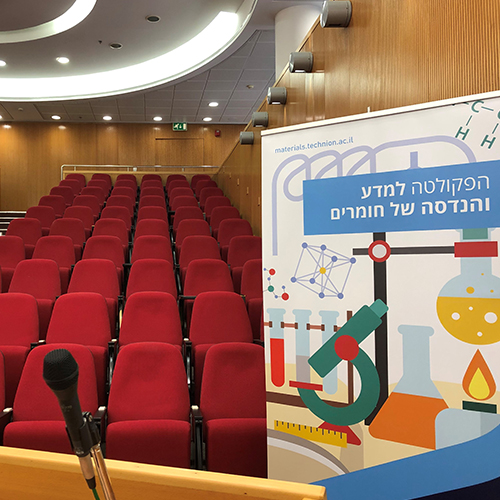
16/02/2026
באודיטוריום ע"ש דויד וואנג, בניין מידן, קומה 3
Mrs. Rita Levit MSc candidate
Department of Materials Science and Engineering, Technion
Israel Institute of Technology Haifa
Soft robotics, actuators, and artificial muscles typically experience different loading and deformation modes throughout their life cycle. To enhance and optimize their performance, a method to independently control their response to various loadings is required. To tackle this challenge, we propose a composite design comprising a cylindrical matrix that is embedded with helical fiber.
The geometry of the helical fiber is simple and characterized by three parameters: the fiber radius, the helical radius, and the pitch.
To establish the relationships between the fiber geometry and the properties and constitutive behavior under tension and torsion, finite element-based simulations are conducted.
To validate the proposed design, representative fiber-embedded composites are 3D-printed and tested under tension and torsion. The experimentally observed trends agree with the FE simulations, thereby underscoring the merit of the design. The findings from this work provide a valuable platform for the design of 3D-printed tunable composites for various applications.


